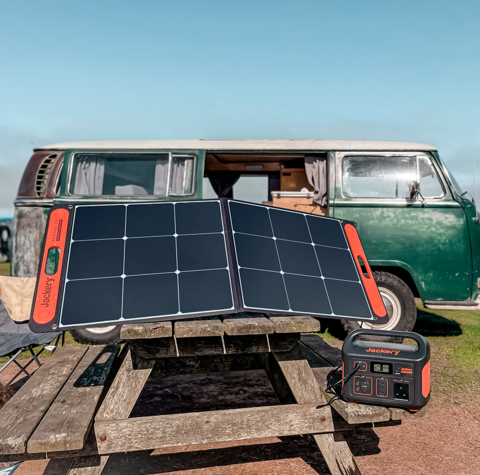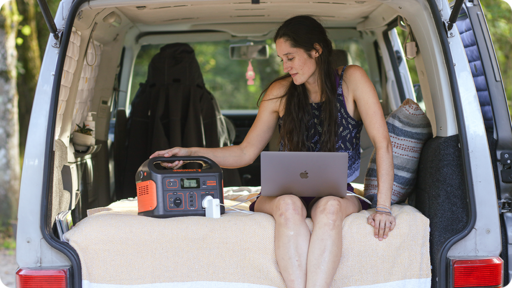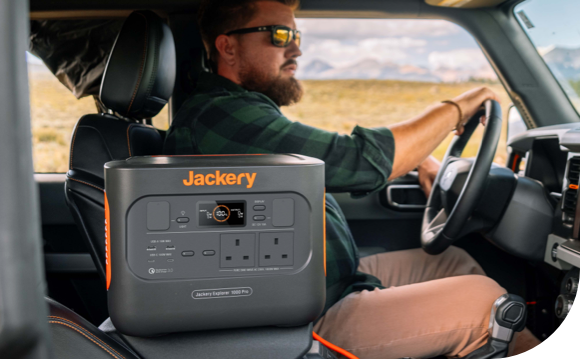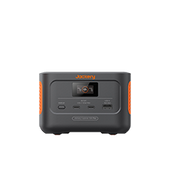Van Life Hacks: Charging Your Devices on the Go in the UK
Van life in the UK often involves efficiently utilizing limited space and power resources for daily living and technical requirements. Specifically, maintaining a consistent power supply for devices demonstrates a unique challenge. If you're a van dweller, you may have to use solar portable power banks, lithium batteries, and power management systems to control the flow and conversion of energy between different sources. Remember that portable solar panels can harness the UK's average annual solar irradiance of around 101.2 W/m²—it needs carefully selecting panels with other technologies, including but not limited to charge controllers, for optimized energy capturing.
Let's now transition to the challenge of charging devices. It would help if you considered the total daily energy consumption according to each device's wattage and usage hours—it helps size energy storage in batteries and offers a high energy-to-weight ratio with better cycle life. Also, charging them requires an elegant system. In the UK, the irregular obtainability of sunlight and varying legal restrictions on where you can park and plug-in demand an adaptable system for different energy sources. A power bank portable charger can be a useful solution for charging devices while on the move. Proper insulation, ventilation, and regulated temperature control for the charging equipment assist in maintaining efficiency and safety through the colder months of the region.

What Are The Necessary Devices In The Van Life?
Here are some of the necessary devices to have on hand for van life:
- Portable Refrigerator- Crucial for storing fresh food and beverages on the road.
- Electric Kettle- Quickly boils water for drinking and cooking.
- Chargers- Essential for charging phones, tablets, laptops and other devices.
- Cooker/Rice Cooker- Allows simple cooking of hot meals on the go.
- Hair Dryer- Helps dry hair quickly in the van interior.
- Flashlights/Headlamps - Provide illumination when van lighting is insufficient. LEDs are the most energy-efficient.
- GPS Navigation- Assists with navigating your journeys, though phone apps can also be used.
- Radio- Necessary for in-vehicle entertainment.
- Power Station- Provides power for appliances and devices off-grid. Solar generators allow renewable charging.
- Solar Panels- Solar panels can provide renewable electricity to the van by absorbing sunlight.
Carefully choosing the right devices catered to your needs enables convenience and comfort while controlling energy consumption on your adventures.
Tips To Reduce Device Power Consumption
In this section, let's reconnoitre the tips to reduce device power consumption.
1, Low Power Mode
Utilizing Device-Specific Features: In pursuing van life in the UK, activating the Low Power Mode in your devices is essential. It's not merely about hitting a switch. However, modern devices offer system-level optimizations like reducing CPU and GPU frequencies, limiting background processes, and turning off unnecessary visual effects. For example, you can use Intel's Extreme Tuning Utility in an Intel-based laptop to configure the energy performance bias settings, specifically tuning your device to your energy requirements.
Understanding Regional Power Regulations: The UK has specific regulations and standards for energy efficiency, like the EU's Ecodesign Directive, affecting the availability of Low Power Mode in some devices. While this might seem regulatory, understanding the settings compliant with the UK's standards can optimize your device for local energy consumption. Manufacturers often provide region-specific manuals; reviewing them will help align with the UK’s standards.
2, Reduce Screen Brightness
Calibration and Ambient Sensing Technology: Screen brightness doesn't have to be a manual affair. Most modern displays come with ambient light-sensing technology. Your device can save power by setting your device to automatically adjust to ambient lighting, mainly when touring the often gloomy weather in the UK. Moreover, professional calibration using tools like DisplayCAL can help you find the optimal brightness settings without compromising visual quality.
Use of OLED and Advanced Technologies: Transitioning to devices with OLED screens can further reduce power consumption since OLED technology lights individual pixels rather than a backlight. It means that black or darker images consume less power. In a country like the UK, where electricity prices are relatively high, the potential savings from using OLED technology and other energy-efficient display technologies can be substantial over time.
3, Disable Bluetooth/Wi-Fi When Not In Use
Automating Network Functions: You can program your devices to disable Wi-Fi/Bluetooth during certain times or locations using tools like Tasker for Android or Apple's Shortcuts for iOS. It is predominantly handy in remote UK locations where network services may be sparse, and your device could be wasting power searching for unavailable networks.
Utilize Specific Networking Standards: In the urban UK, Wi-Fi standards like Wi-Fi 6 provide better efficiency in densely populated areas. If you're utilizing public Wi-Fi, knowing which standards are prevalent and configuring your device to those specifics can increase energy efficiency. Review your device's network settings and consult guides for optimal configurations.
4, Turn Off the Device When Appropriate
Utilizing Power Scheduling Software: Certain devices allow you to schedule shutdowns and wake-ups. For example, you can turn your devices off during regular travel or sleep hours by utilizing the Windows Task Scheduler or cron jobs on a Linux-based system. As the UK's grid can be carbon-intensive during peak hours, this synchronization helps minimize your carbon footprint.
Understanding and Utilizing Hibernation: Unlike simple sleep mode, hibernation in devices stores the current state in the hard drive, hence eliminating power to RAM. Reconfiguring your device to use hibernation instead of sleep in the UK's unpredictable weather (where you might not have the chance to charge frequently) can be a smart power-saving step.
5, Charge in Time
Optimal Charging Practices: In the UK, energy rates fluctuate throughout the day, with off-peak times typically occurring at night. Utilize smart chargers, including power bank portable chargers from Jackery, which might be planned to charge at these off-peak times. It ensures that your device gets charged when the grid is least strained and often at a lower cost.
Leveraging Renewable Sources: If you're traversing the scenic routes of Scotland or other locations with abundant solar energy, using the best portable power banks is an innovative way to keep your devices charged. While knowing the local weather patterns and renewable energy opportunities, you can plan your charging strategy to align with the UK's renewable energy infrastructure.
How to Choose a Portable Power Bank for Van Life?
Here are the factors to consider when choosing a portable power station for van life in the UK.
Capacity
Understanding Your Energy Needs: Assessing the exact power requirements in your van life adventure across the UK is key. It comprises listing the daily power consumption of appliances like fridges, lighting, laptops, and others and then translating this into watt-hours (Wh). For example, if your fridge consumes 40W and runs 10 hours a day, it would need 400Wh daily. At the same time, calculating the total consumption over 24 hours for all appliances gives you an estimated daily need. Ultimately, it defines the capacity required for the portable power bank.
Scaling for Longevity and Efficiency: Since the British weather is notoriously unpredictable, you'll want to consider a portable power station, the capacity of which is at least 1.5 to 2 times your daily consumption. As a result, it ensures that you have enough reserve power on cloudy or stormy days when solar charging might be limited. Furthermore, this type of scaling is particularly relevant in regions like Scotland, where sun exposure may vary considerably. Therefore, if your daily consumption is 2000Wh, you should aim for a 3000 to 4000Wh capacity.
Scale
Size and Weight Considerations: Every inch of space is precious in van life. When selecting a portable power bank, you must focus on meeting a balance between capacity and physical size. Remember that lithium-ion batteries are prevalent in the UK for their high energy-to-weight ratio. For instance, a lithium-ion battery typically weighs less and takes up less space than its lead-acid counterpart. Meanwhile, it allows easier integration into your van's design.
Modularity for Flexibility: Sometimes, building a scalable system through modular portable power banks provides flexibility without sacrificing performance. In cases where a larger single unit might be cumbersome or expensive, you might use two or more smaller units for the same capacity and scalability. For example, employing two 50Ah lithium batteries instead of one 100Ah may offer better placement options and meet your power needs more competently and manageably.
Affordability
Initial Costs versus Long-term Value: Investing in a power bank isn't just about the upfront cost—you must examine the lifecycle value. Lithium iron phosphate (LiFePO4) batteries are preferential in the UK, thanks to their longer lifespans and better cycle stability. Still, they may be more expensive initially. Considering the long-term, higher upfront investment in LiFePO4 could save you money compared to cheaper lead-acid batteries that might need replacement more frequently.
Government Incentives and Regulations: It's worth researching if any localized incentives or grants in the UK can offset the initial costs. For instance, some local councils might offer grants or incentives for eco-friendly solutions. Additionally, regulations should also be prudently studied, especially regarding disposal and recycling. Batteries must comply with the UK's Waste Batteries Regulations to guarantee proper recycling and minimize environmental impact.
Connectivity and Compatibility
Integration with Solar Panels and Inverters: Your portable power station should be impeccably integrated with the solar panels and inverters you might have in your van. As you know, the common solar generator setups in the UK include 12V and 24V systems. Selecting a portable power bank that matches these voltages, or an adjustable one, ensures compatibility. In regions like Wales or the Western Highlands, where solar acquaintance might be inconsistent, having an MPPT (Maximum Power Point Tracking) charge controller can capitalize on energy harvest.
Compatibility with Appliances: Understanding the specific needs of your appliances and how they align with the portable power station is essential. Consider your inverter's continuous and peak power ratings for the devices you'll be using. For example, if your cooking appliances have a peak start-up current that exceeds the inverter's capability, it might cause issues. So, compatibility between these elements ensures a harmonious and efficient energy system for your van's life.

Why Jackery's Portable Power Station Is Perfect For Van Life?
Here comes the time to explore the best portable power bank products from Jackery. Let's proceed.
Jackery Explorer 500 Portable Power Station
Jackery Explorer 500 Portable Power Station is a modern portable energy marvel. It offers a battery capacity of 518Wh to ensure you're never left wanting power when you move. One of the key features is its versatility; it offers a 500W output for running a range of devices. Armed with an AC outlet, a 12V carport, 2 DC outlets and 3 USB ports, it ensures that you're well-covered whether you're charging your laptop, powering a mini-fridge, or keeping your mobile devices topped up. Besides, the added benefits of its lightweight and compact design make it easy to carry. With a built-in LED flashlight, it's clear that convenience was at the head of its design.
For those embracing the van life in the UK, the Jackery Explorer 500 Portable Power Station is nothing short of a godsend. With this product, you have a reliable power source, and its solar recharging capability also means you can harness the sun's power, even on cloudy days. Likewise, the product's two-year warranty and the additional one-year extended warranty give you peace of mind, knowing that a commitment to quality backs you. Hence, as you journey through the picturesque landscapes of the UK in your van, let the Jackery Explorer 500 Portable Power Station be your trusted companion. Undoubtedly, it makes your adventures comfortable and memorable.
Jackery Explorer 1000 Pro Portable Power Station
Jackery Explorer 1000 Pro Portable Power Station is for on-the-go energy needs. It has a 1002Wh lithium battery capacity to power multiple devices simultaneously through its ports, including one carport, two AC outlets, two USB-C, and two USB-A connections. In addition, it has a solar charging option to give you an eco-friendly way to recharge the battery. With its condensed design and remarkable power output, the benefits of the Jackery Explorer 1000 Pro Portable Power Station extend to its convenience, efficiency, and reliability. Consequently, it's an ideal companion for outdoor activities, emergency backup, or simply keeping your gadgets charged and ready.
Jackery Explorer 1000 Pro Portable Power Station becomes invaluable when transitioning to van living in the UK. As you already know, unpredictable weather and remote locations can make traditional power sources unreliable. Along similar lines, you always have a dependable power source with this product. Whether you're cooking, keeping devices charged, or powering essential appliances, the versatility and considerable battery capacity of the Jackery Explorer 1000 Pro Portable Power Station ensure that your van life in the UK is contented and uninterrupted. The integration of solar charging even aligns with a sustainable lifestyle, which promotes a more accountable and regimented way of life on the road.
How To Safely Store And Charge Devices In A Van?
When storing and charging devices in a van, understand the nuances of thermal management:
- It's indispensable to locate your charging system, including devices and portable power banks, away from heat-producing equipment. For that purpose, you may utilize thermally conductive materials, like aluminiumcasing, to dissipate heat.
- Design a vented compartment with a controlled airflow system to maintain the ambient temperature. You can employ temperature sensors for real-time monitoring.
- Incorporate a charge controller with a maximum power point tracking algorithm to optimize charging efficiency. Apart from that, ensure the devices use chargers with the appropriate voltage and current ratings, compliant with the devices' specifications.
- Integrating an intelligent battery management system will regulate and balance the charge between cells. It prevents overcharging and supplies data like state of charge and health.
- Choose Lithium Iron Phosphate (LiFePO4) batteries for your portable power station. The reason is that they have a stable chemical composition and a lower risk of thermal runaway.
- Last but not least, adhere to standards such as ISO 6469-3:2018for electric vehicle safety and IEC 62660-1:2018 for secondary lithium-ion cells since they provide guidelines for electric shock protection and thermal management systems.

Conclusion
As we've explored, portable power stations are an invaluable asset for van life, allowing you to charge devices and run appliances in your home. Being able to harness electricity autonomously allows you true freedom to roam off-grid while still powering essentials for work and comfort. With Jackery's range of portable generators and solar panels, you can find the perfect powering solution tailored to your mobile needs and budget.
Related Articles:
On-the-Go Energy Solutions: Power Stations for Caravans in the UK
A Portable Camping Power Bank: Essential Tips for UK Campers
Solar Generators for Festival Camping: Portable, Clean, and Sustainable Power Solutions






















































































